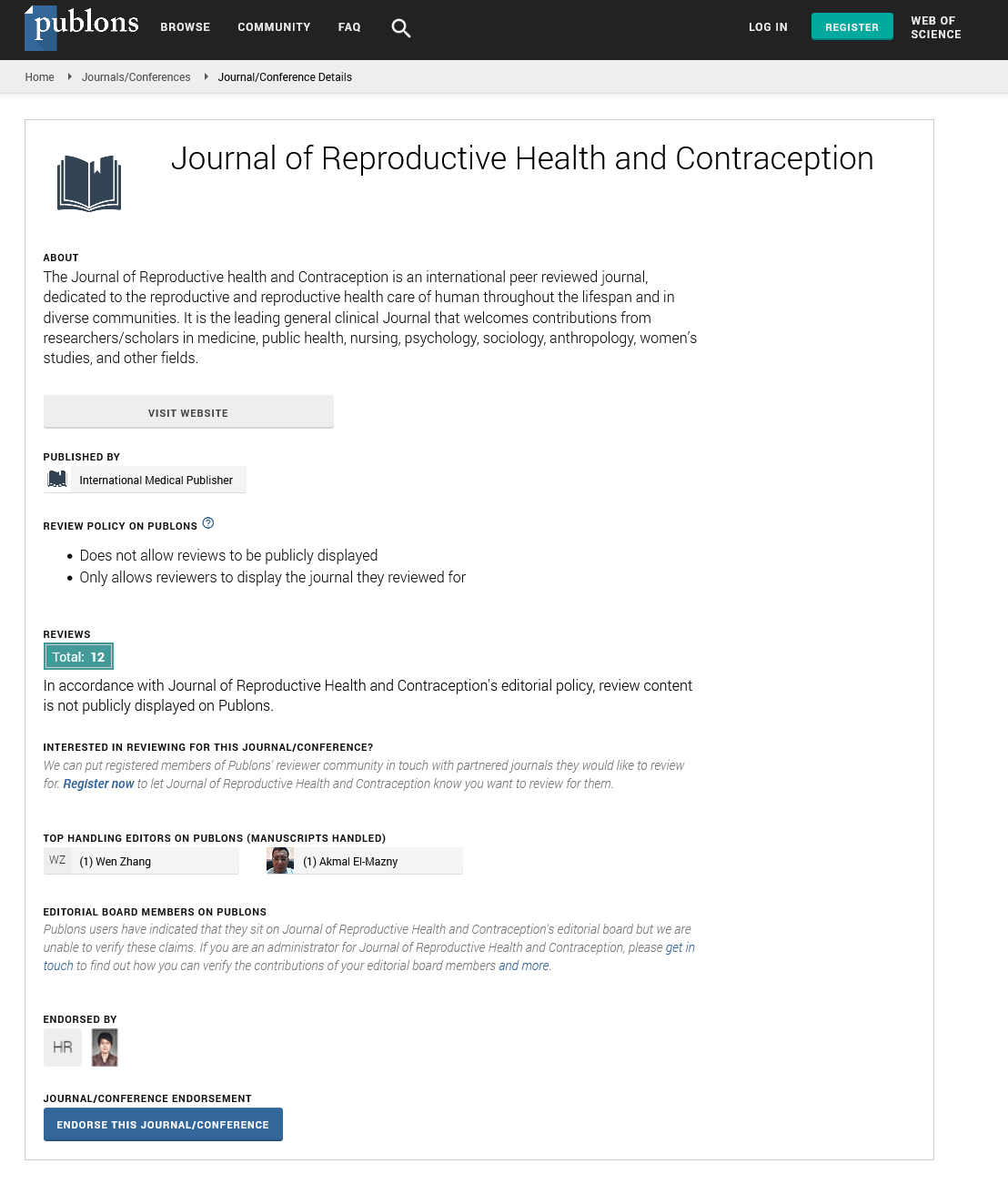ISSN : 2471-9749
Journal of Reproductive Health and Contraception
Knowledge of maternal health services among women utilising primary health care facilities in ankpa, north central nigeria: a qualitative perspective
Global Summit on Nursing care and Midwifery
May 26-27, 2021 | Webinar
Iheanacho Peace, Opara Uchechi, Lillyman Sue
University of Nigeria, Enugu Campus
ScientificTracks Abstracts: J Contracept Stud
Abstract
Statement of the problem: The period of childbearing (15-49 years) is critical for most women. For some women, especially in developing nations, childbirth is associated with potential morbidities and even mortality. Health knowledge is one of the major factors that contribute to better childbearing experiences because it improves the woman’s understanding and likelihood of utilization of appropriate health services. However, previous studies show lack of agreement regarding women’s knowledge of the core components of maternal health services (MHS), indicating a need for a more in-depth exploration of women’s knowledge of MHS. The purpose of this study was an in-depth exploration of women’s knowledge of MHS. Methodology: The qualitative descriptive phenomenological approach was utilized in this study. A semi-structured, face-to-face in-depth interview was utilised to obtain data from 10 participants who had made use of four popular primary health care facilities in Ankpa town – two private, one mission and one public. Findings: The participants had some knowledge of some components of MHS as well as its importance and functions. All the participants knew of antenatal services, and the some of the screenings done. None of them could mention family planning as a component of MHS. Three themes emerged regarding women’s knowledge of MHS. They included knowledge of components, importance and functions of MHS. Conclusion and significance: This study revealed a lack of in-depth knowledge of MHS among women in Kogi State, which has negatively impacted on the utilisation of some services, suggesting a need for more effective approaches to health education of childbearing women.
Biography
Peace Iheanacho (RN, PhD) is a nurse lecturer with several years’ experience teaching research methods in nursing, basic nursing, psychology in nursing and mental health and psychiatric nursing. She has developed interest in qualitative research especially hermeneutic phenomenology. Uchechi Opara (RN, MSc) has several years of experience working among women of childbearing age at a private primary care hospital. Her wor catered around pregnancy, labour, delivery, and post natal care, family planning, child health services and HIV care. She is currently a doctoral student in a university in Canada where she is researching on maternal health service utilization.
Google Scholar citation report
Citations : 201
Journal of Reproductive Health and Contraception received 201 citations as per Google Scholar report
Journal of Reproductive Health and Contraception peer review process verified at publons
Abstracted/Indexed in
- Google Scholar
- China National Knowledge Infrastructure (CNKI)
- WorldCat
- Publons
Open Access Journals
- Aquaculture & Veterinary Science
- Chemistry & Chemical Sciences
- Clinical Sciences
- Engineering
- General Science
- Genetics & Molecular Biology
- Health Care & Nursing
- Immunology & Microbiology
- Materials Science
- Mathematics & Physics
- Medical Sciences
- Neurology & Psychiatry
- Oncology & Cancer Science
- Pharmaceutical Sciences
